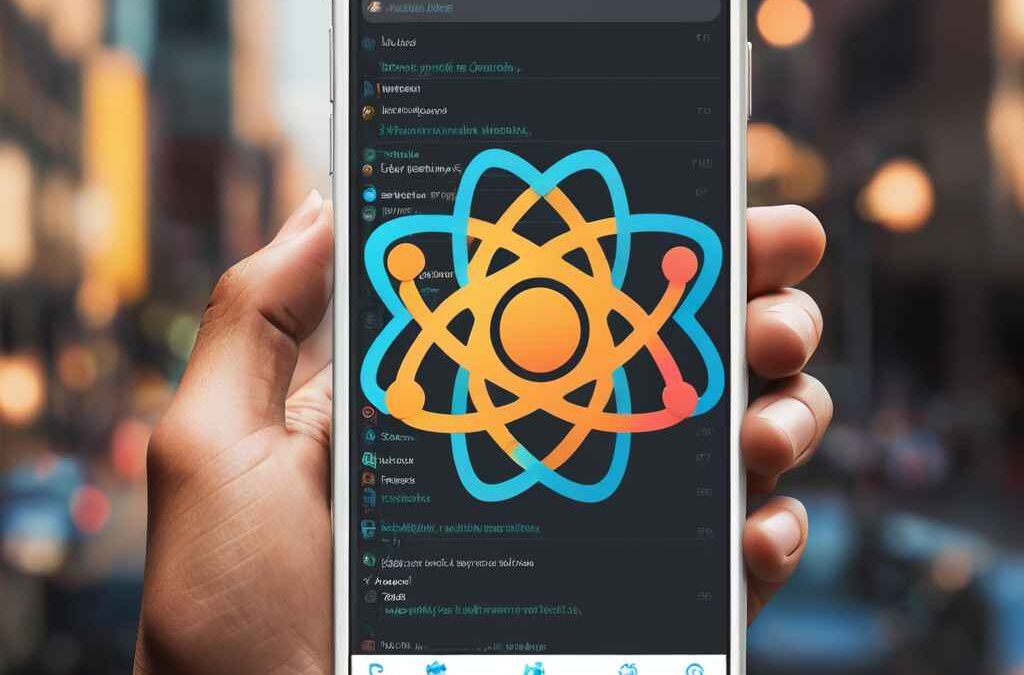In the ever-evolving world of mobile app development, choosing the right framework can make a significant difference in the success and efficiency of your project. React Native has become a popular choice for developers and businesses alike due to its unique advantages. In this article, we’ll explore five top benefits of choosing React Native for your next mobile app development project. We’ll use simple English to explain these benefits, making it easy for anyone to understand why React Native is a great choice.
1. Cross-Platform Compatibility
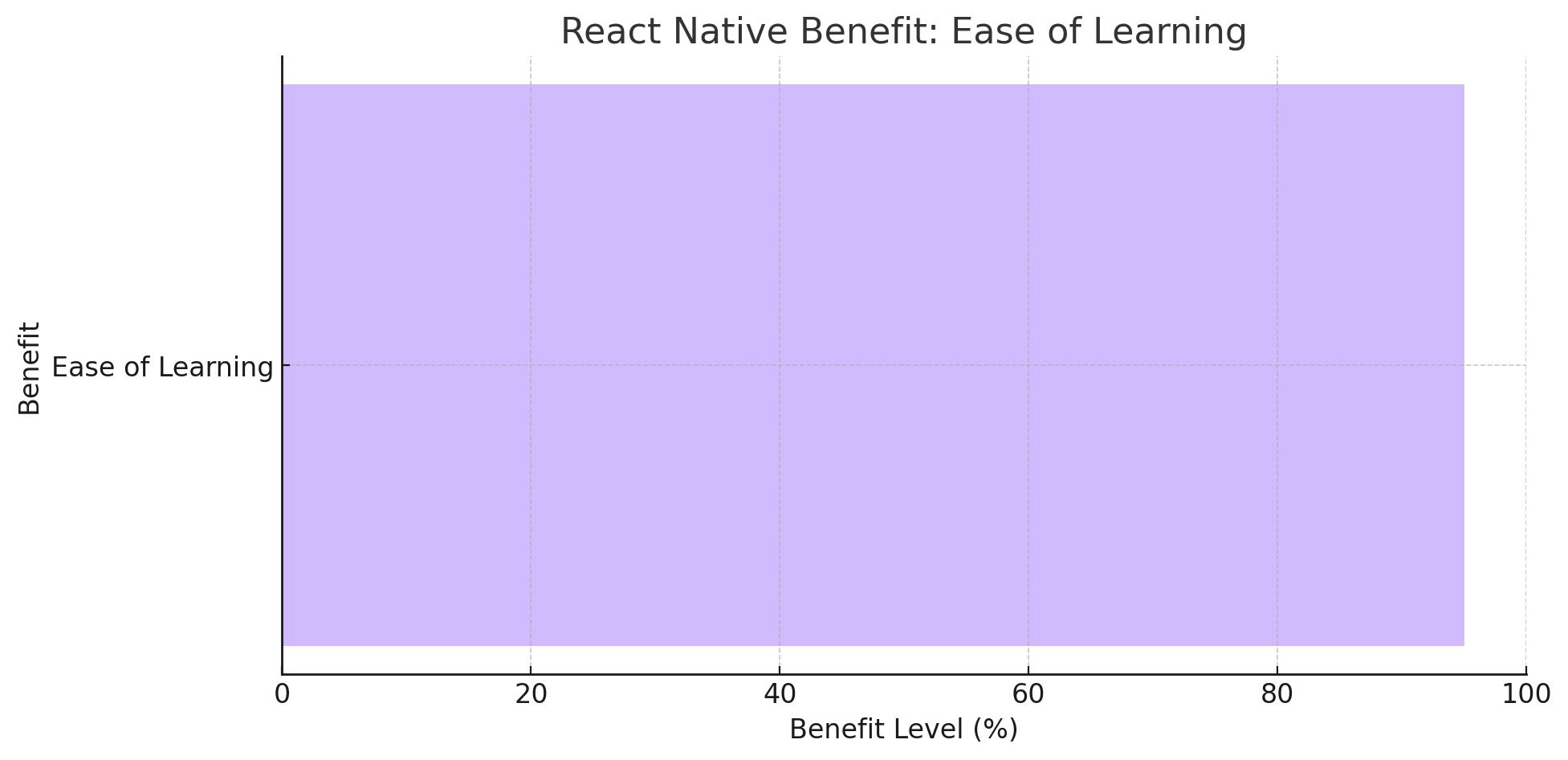
One of the most significant benefits of React Native is its cross-platform compatibility. Traditionally, developing apps for both iOS and Android required separate codebases, which meant more time, effort, and resources. However, React Native allows developers to write a single codebase that works on both platforms. This is possible because React Native uses JavaScript and React, a popular web development library, to create mobile apps.
Why is this important?
- Time Efficiency: Developers can save a lot of time by not having to write and maintain separate codebases for iOS and Android. This means faster development cycles and quicker time-to-market.
- Cost Savings: With one codebase for both platforms, companies can reduce the number of developers needed and the associated costs. This is especially beneficial for startups and small businesses with limited budgets.
- Consistent User Experience: Since the same codebase runs on both platforms, the user experience is more consistent, ensuring that users have a similar experience regardless of their device.
2. Performance Similar to Native Apps
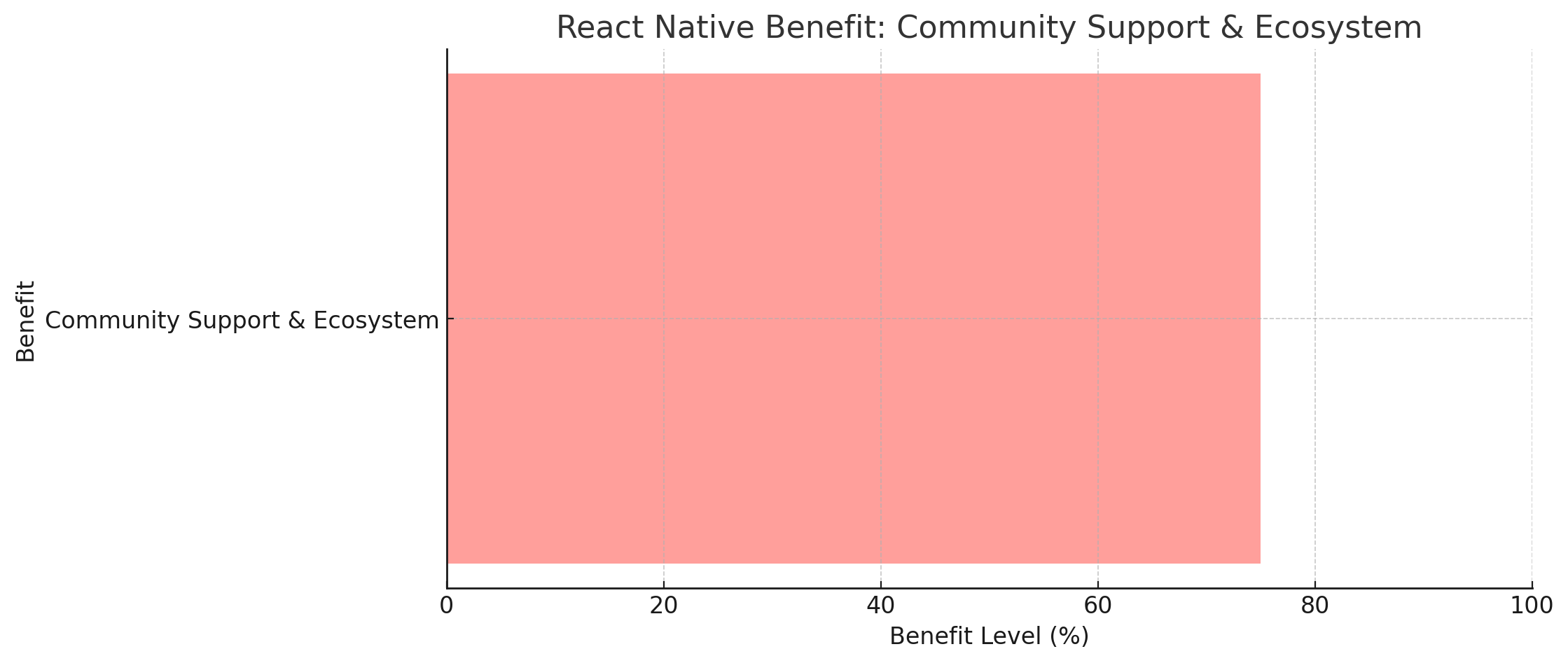
React Native apps are known for their performance, which is often comparable to native apps. This is because React Native uses native components, meaning that the app’s user interface is rendered using native views rather than web views. Additionally, React Native bridges JavaScript and native code, allowing for smooth and responsive interactions.
Key Performance Aspects:
- Fast and Smooth: React Native’s ability to directly interact with native components ensures that the app runs smoothly and quickly, providing a seamless user experience.
- Efficient Resource Usage: By using native components, React Native apps can take full advantage of the device’s hardware capabilities, leading to better performance and efficiency.
3. Hot Reloading for Faster Development
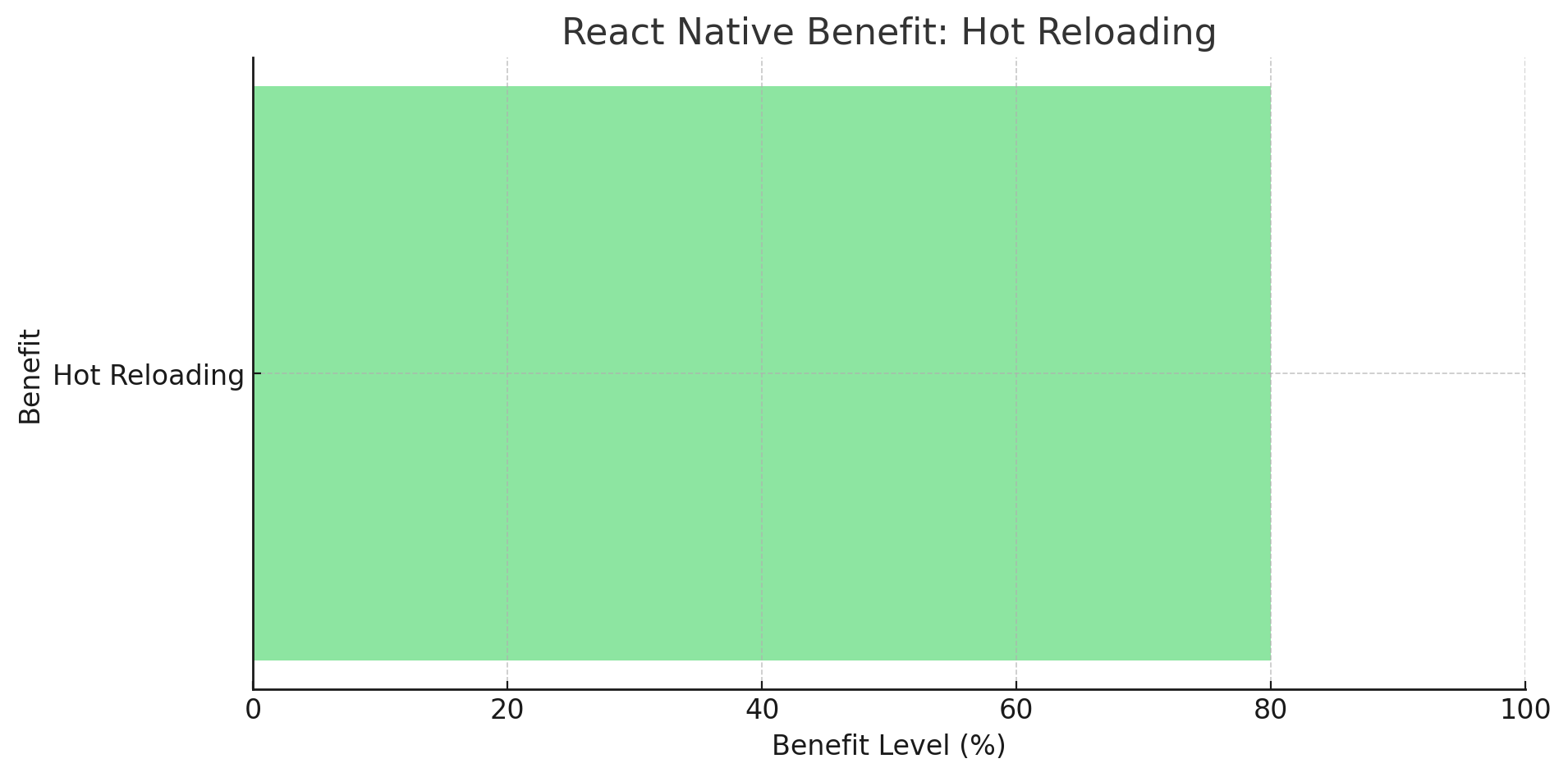
Hot reloading is a feature in React Native that significantly speeds up the development process. It allows developers to instantly see the results of their code changes without having to recompile the entire app. This is particularly useful when making minor adjustments or debugging.
Advantages of Hot Reloading:
- Real-Time Feedback: Developers can see the impact of their changes in real time, making it easier to experiment and iterate on designs and features.
- Increased Productivity: With hot reloading, developers spend less time waiting for the app to compile, allowing them to focus more on writing code and improving the app.
4. Strong Community Support and Rich Ecosystem

React Native has a vibrant and active community of developers, which is a significant advantage. This community contributes to a rich ecosystem of libraries, tools, and resources that can be leveraged to enhance and streamline app development.
Community Benefits:
- Access to Resources: Developers can easily find solutions to common problems, tutorials, and best practices shared by the community. This can save time and help in overcoming challenges.
- Pre-Built Components: There are numerous pre-built components available in the React Native ecosystem, which can be easily integrated into projects. This reduces the need to build everything from scratch.
- Continuous Improvement: The community’s active involvement means that React Native is continuously being improved and updated, keeping it aligned with the latest trends and technologies in mobile app development.
5. Easy to Learn and Use
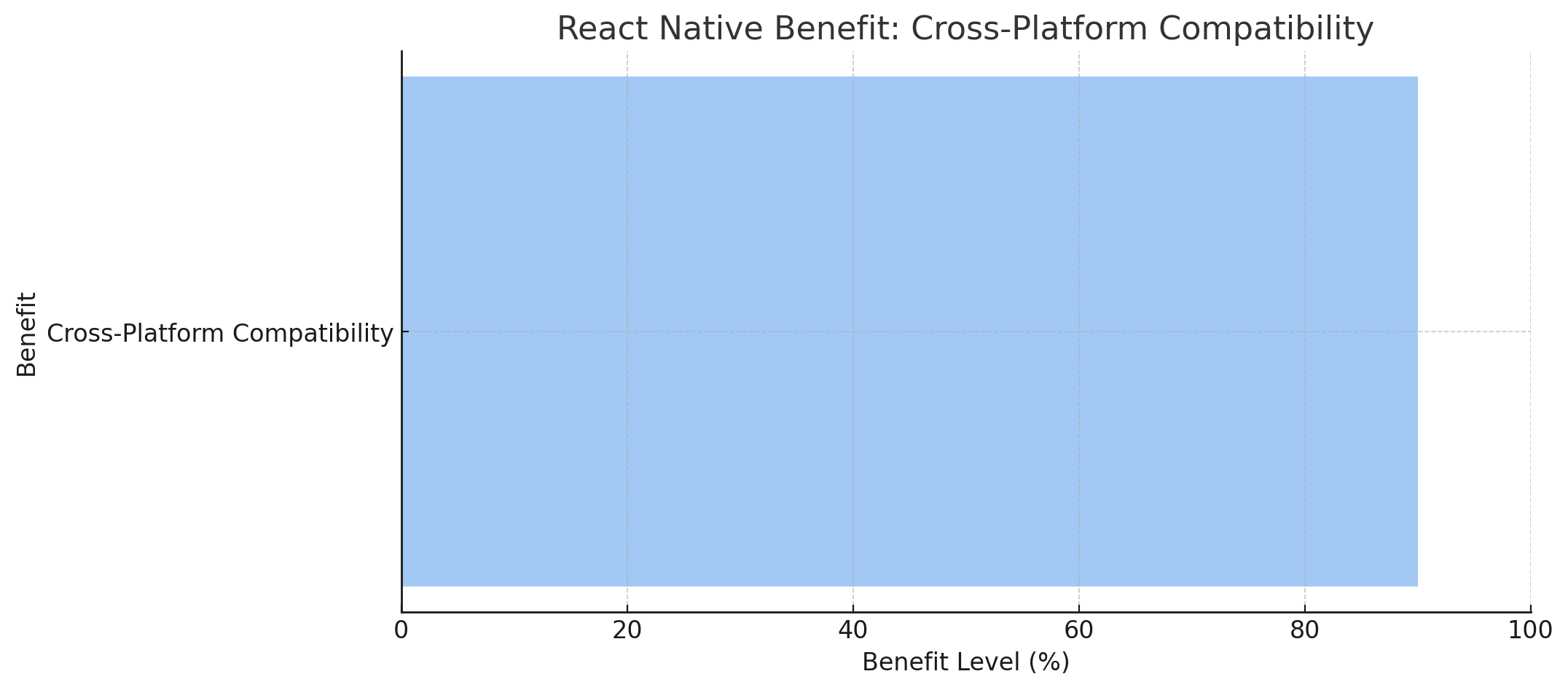
React Native is relatively easy to learn, especially for developers with a background in JavaScript or React. The learning curve is not as steep compared to other mobile development frameworks, making it accessible to a broader range of developers.
Why is this beneficial?
- Quick Onboarding: New developers can quickly get up to speed with React Native, reducing the time needed for training and onboarding.
- JavaScript Knowledge: Since React Native uses JavaScript, a widely used programming language, many developers already have the necessary skills to start working with it. This broadens the talent pool available for hiring.
- Extensive Documentation: React Native has thorough and well-maintained documentation, making it easier for developers to find answers and learn the framework.
Conclusion
React Native offers numerous benefits that make it an excellent choice for mobile app development. Its cross-platform compatibility, performance comparable to native apps, hot reloading feature, strong community support, and ease of learning make it a versatile and efficient framework. Whether you’re a startup looking to quickly develop an app or an established company seeking cost-effective solutions, React Native can provide the tools and resources needed to build high-quality, performant mobile applications.
As technology continues to evolve, staying up-to-date with the latest tools and frameworks is crucial. React Native’s continuous growth and adoption in the industry make it a valuable asset for developers and businesses alike. By choosing React Native, you can ensure that your app development process is streamlined, cost-effective, and capable of delivering a great user experience.
